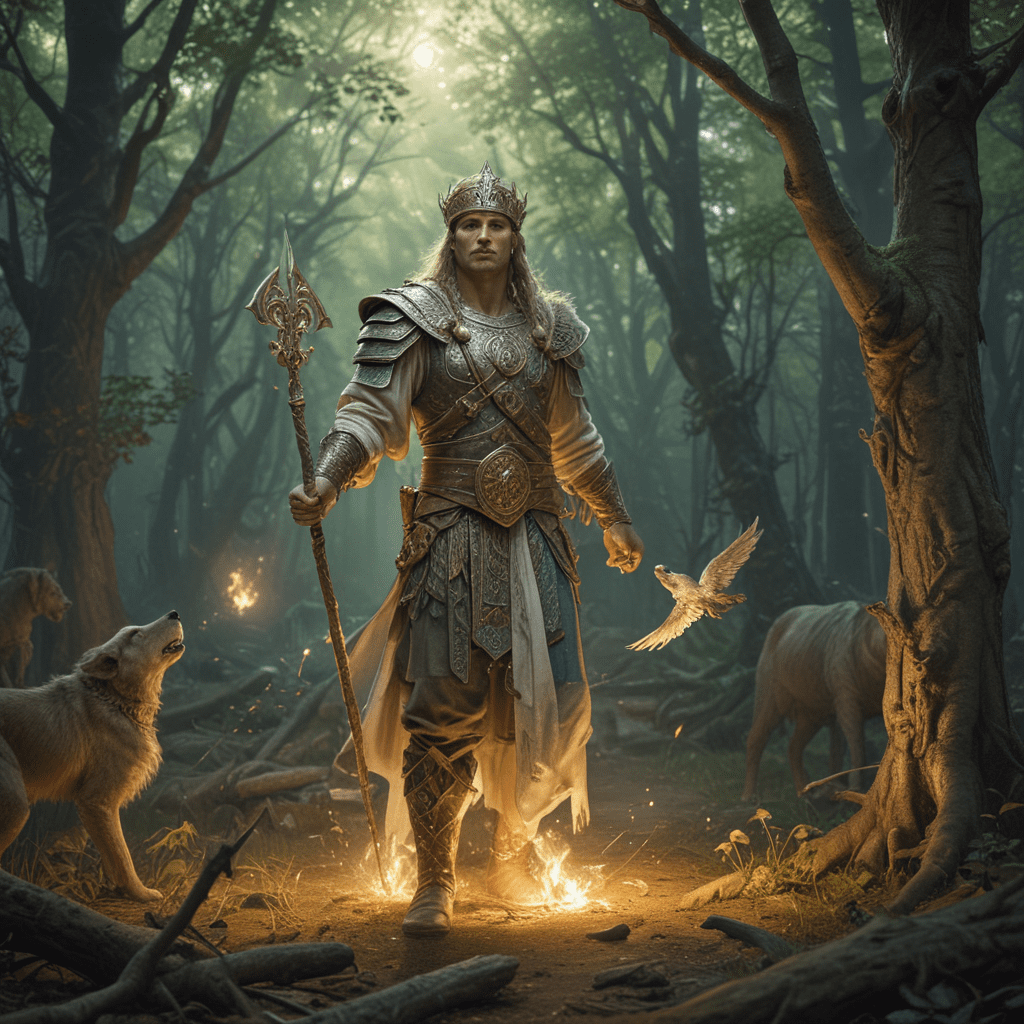The Role of Magic in Slavic Mythology
Magic has always played a significant role in Slavic mythology, influencing beliefs, folklore, and rituals. Understanding Slavic magic provides insights into the rich cultural heritage and spiritual practices of Slavic people.
Origins of Slavic Magic
The origins of Slavic magic date back to ancient times, with influences from pre-Christian beliefs and practices. Slavic mythology is rooted in animism, the belief that all things possess a spirit, and magic was seen as a way to interact with and influence these spirits.
Types of Slavic Magic
Slavic magic encompasses a wide range of practices, including:
- White magic: Used for benevolent purposes, such as healing, protection, and love.
- Black magic: Associated with harmful intentions, such as curses, jinxes, and causing harm.
- Elemental magic: Drawing power from natural elements, such as fire, water, earth, and air.
- Ancestral magic: Involving communication with deceased ancestors for guidance and assistance.
6. Practitioners of Slavic Magic
Slavic magic was practiced by various individuals, including:
- Village elders: Respected members of the community with knowledge of traditional rituals and spells.
- Healers (znakhari): Healers skilled in using herbs, potions, and incantations for both physical and spiritual ailments.
- Witches (vedmas): Female practitioners often associated with both healing and harmful magic.
- Shamans: Individuals believed to possess the ability to communicate with spirits and travel to the otherworld.
7. Magical Objects and Artifacts
Certain objects were believed to possess magical powers in Slavic mythology, such as:
- Amulet (oberig): Small objects worn for protection against evil spirits or misfortune.
- Totem animal: Animals believed to represent a particular individual or community, providing guidance and support.
- Magical herbs: Plants used in potions, spells, and rituals for healing, divination, and other purposes.
- Sacred stones: Stones believed to contain spiritual energy or possess specific magical properties.
8. Magical Rituals and Ceremonies
Slavic magic often involved specific rituals and ceremonies, such as:
- Zhale: A funeral ritual involving elaborate mourning and communication with the deceased.
- Koljada: Winter solstice celebrations honoring the sun god and bringing good luck.
- Kupala: Summer solstice festival associated with water, fertility, and purification.
- Maslenitsa: Spring festival marking the end of winter and the beginning of a new agricultural cycle.
9. The Influence of Slavic Magic on Folklore
Slavic magic has left a lasting impact on folklore, including:
- Fairy tales: Stories often featuring magical characters, objects, and transformations.
- Legends: Narratives passed down through generations, often involving supernatural beings and extraordinary events.
- Byliny: Epic poems or ballads recounting the adventures of legendary heroes and supernatural encounters.
- Proverbs and sayings: Expressions that reflect traditional beliefs about magic and the supernatural.
10. The Role of Magic in Slavic Beliefs
Magic played a central role in Slavic beliefs about the world and the divine:
- Animism: The belief that all things possess a spirit.
- Polytheism: The worship of multiple gods and goddesses, many of whom had associations with specific magical domains.
- Destiny: The belief that events are predetermined by fate, often influenced by supernatural forces.
- Taboos: Prohibitions against certain actions believed to attract misfortune or anger spirits.
FAQs:
Q: Was Slavic magic real?
A: Slavic magic was believed to be real by those who practiced it, and its influence can be seen in folklore and cultural practices.
Q: What was the most common type of Slavic magic?
A: White magic, used for benevolent purposes such as healing and protection, was the most prevalent.
Q: Who were the most powerful practitioners of Slavic magic?
A: Shamans and witches were considered to be the most powerful magic practitioners.



